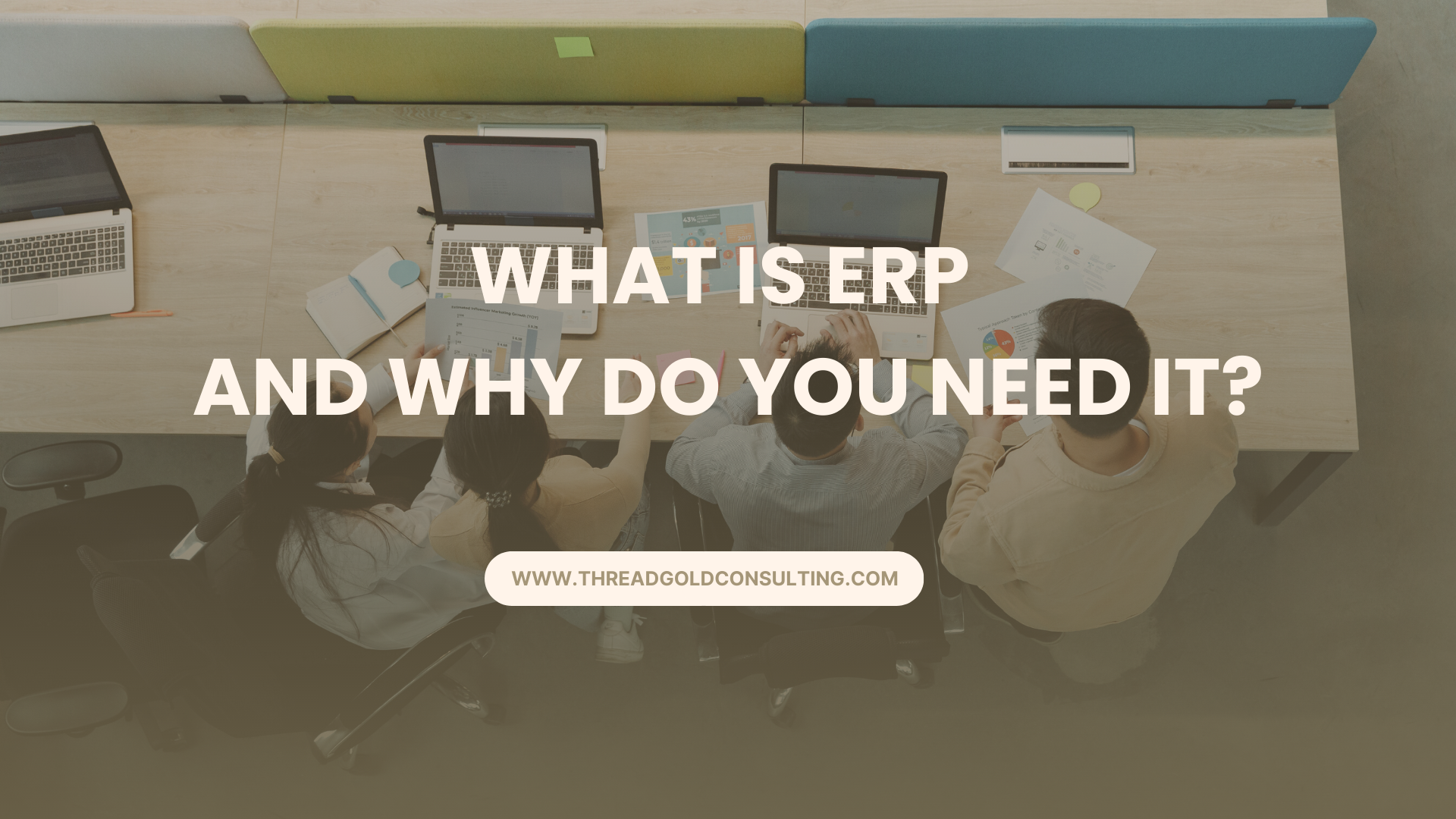Definition of Enterprise Resource Planning (ERP)
Organizations use enterprise resource planning (ERP) to manage day-to-day business activities, such as accounting, procurement, project management, risk management, compliance, and supply chain operations. A complete ERP suite also includes enterprise performance management and software that helps plan, budget, predict, and report on an organization’s financial results.
ERP systems tie together many business processes and enable the flow of data between them. By collecting an organization’s shared transactional data from multiple sources, ERP systems eliminate data duplication and provide data integrity with a single source of truth.
Today, ERP systems are critical for managing thousands of businesses of all sizes and industries. ERP is indispensable to these companies as the electricity that keeps the lights on.
Enterprise resource planning systems are complete, integrated platforms, either on-premises or in the cloud, managing all aspects of a production-based or distribution business. ERP systems support all aspects of financial management, human resources, supply chain management, and manufacturing with your core accounting function.
ERP systems will also provide transparency to your complete business process by tracking all production, logistics, and financial aspects. These integrated systems act as a business’s central hub for end-to-end workflow and data, allowing a variety of departments to access.
ERP Systems and software support multiple functions across the enterprise, mid-sized, or small businesses, including customizations for your industry.
The Business Value of ERP
It’s impossible to ignore the impact of ERP in today’s business world. As ERP systems corral enterprise data and processes, businesses can align separate departments and improve workflows, resulting in significant bottom-line savings. Examples of specific business benefits include:
- Improved business insight from real-time information generated by reports
- Lower operational costs through streamlined business processes and best practices
- Enhanced collaboration from users sharing data in contracts, requisitions, and purchase orders
- Improved efficiency through a common user experience across many business functions and well-defined business processes
- Consistent infrastructure from the back office to the front office, with all business activities having the same look and feel
- Higher user-adoption rates from a common user experience and design
- Reduced risk through improved data integrity and financial controls
- Lower management and operational costs through uniform and integrated systems
7 Reasons to Move to an ERP Cloud Solution
For businesses of all sizes, including enterprise and small to midsize, retiring on-premises systems and moving entirely to the cloud all at once isn’t possible. Or, at the very least, it’s not something they’re comfortable doing within a short development window. Meanwhile, staying the course with an on-premises ERP, ignoring all the advantages of enterprise resource planning as a cloud solution, is no longer an ideal path. Why should you consider using cloud applications to replace or augment your on-premises system?
1. Readily adopt new and evolving SaaS technologies
Next-generation technologies, like artificial intelligence (AI), help cloud-based systems rapidly improve their capabilities without periodic updates, unlike your legacy system. Now, with no additional or new input from the end-user, ERP systems continually become significantly easier to manage and use.
2. Extend the value of your existing ERP System
Augmenting and integrating legacy software with cloud applications can complement, enhance, and supplement important tasks. This approach can breathe new life into legacy ERP systems, giving businesses a great opportunity to adopt cloud capabilities.
3. Access new technologies
Finding cloud applications that complement your legacy ERP software modules lets you immediately take advantage of rapidly advancing new technologies and improving user paradigms. These provide complimentary systems that deliver immediate business capabilities and value without a fundamental change in your operations.
4. Reduce third-party dependencies
Reporting and analytics for legacy systems typically require involvement from a third-party vendor to generate operational business intelligence. Using cloud applications from your legacy ERP vendor often produces the same or better intelligence with no other vendor relationship.
5. Evolve your financial systems
Legacy systems were never meant to be modern reporting engines. Cloud-based technology was born in the last decade and developed, as a core principle, with an entirely different mindset and understanding of what was possible and what it needed to succeed for ERP platforms.
6. More robust security resources
Cloud solution service providers have large, full-time teams dedicated to proactively monitoring and staying current with cloud security issues and threats 24 hours a day.
7. Attract in-demand talent
The next generation of young workers has grown up with seamless technology that is mobile, easy to use, and always-on. No company that continues to rely purely upon on-premises technology will be able to recruit top talent, regardless of age.
Want to purchase NetSuite and get started on the NetSuite platform?
Threadgold Consulting provides tailored one-on-one support. We help you through the implementation process, increase the efficiency of your business and provide you with accurate, real-time information.






